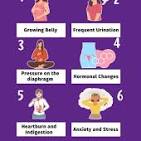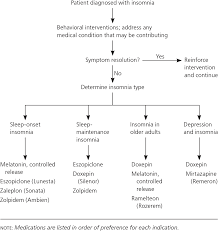Understanding Third Trimester Insomnia
Pregnancy is a beautiful journey filled with excitement and anticipation, but it can also come with its challenges. One common issue that many expectant mothers face during the third trimester is insomnia. Insomnia refers to difficulty falling asleep, staying asleep, or experiencing restful sleep throughout the night.
During the third trimester of pregnancy, hormonal changes, physical discomfort, and emotional stress can all contribute to disrupted sleep patterns. As your baby grows and your body prepares for labor and delivery, you may find it increasingly difficult to get a good night’s rest.
Common Causes of Third Trimester Insomnia:
- Physical Discomfort: As your belly grows larger, finding a comfortable sleeping position can be challenging. Back pain, frequent urination, leg cramps, and heartburn are common physical discomforts that can disrupt your sleep.
- Hormonal Changes: Fluctuations in hormone levels, particularly progesterone and estrogen, can affect your sleep-wake cycle and lead to insomnia.
- Anxiety and Stress: With the impending arrival of your baby, you may experience increased anxiety and worry about labor, delivery, and becoming a parent. These emotions can make it difficult to relax and fall asleep.
Tips for Managing Third Trimester Insomnia:
- Create a Relaxing Bedtime Routine: Establish a calming bedtime routine that signals to your body that it’s time to wind down. This could include taking a warm bath, reading a book, or practicing relaxation techniques like deep breathing or meditation.
- Optimize Your Sleep Environment: Make your bedroom conducive to sleep by keeping it dark, quiet, and cool. Invest in a supportive pregnancy pillow to help you find a comfortable sleeping position.
- Maintain a Healthy Lifestyle: Stay active during the day with gentle exercises like prenatal yoga or walking. Eat nutritious meals at regular intervals and avoid caffeine close to bedtime.
- Talk to Your Healthcare Provider: If insomnia persists and significantly impacts your daily functioning, discuss your concerns with your healthcare provider. They may recommend strategies or interventions to help improve your sleep quality.
Remember that experiencing occasional sleep disturbances during pregnancy is normal. However, if you find yourself struggling with persistent insomnia that affects your well-being, don’t hesitate to seek support from healthcare professionals who can provide guidance tailored to your individual needs.
Understanding Third Trimester Insomnia: Causes, Timing, and Solutions
- Can preeclampsia cause insomnia?
- Is lack of sleep normal in third trimester?
- Does insomnia mean labor is near?
- At what stage of pregnancy does insomnia start?
- Does insomnia mean labor is close?
- What helps insomnia in third trimester?
- What causes insomnia at the end of pregnancy?
Can preeclampsia cause insomnia?
Preeclampsia, a serious pregnancy complication characterized by high blood pressure and signs of damage to other organ systems, can indeed contribute to insomnia in expectant mothers. The physical discomfort and anxiety associated with preeclampsia, along with the potential need for increased monitoring and medical interventions, can disrupt sleep patterns. Additionally, the stress of managing a high-risk pregnancy can exacerbate feelings of anxiety and make it challenging to relax and fall asleep. It is essential for pregnant individuals experiencing symptoms of preeclampsia, including insomnia, to seek prompt medical attention and follow their healthcare provider’s recommendations for monitoring and managing this condition to ensure the health and well-being of both themselves and their baby.
Is lack of sleep normal in third trimester?
It is common for expectant mothers to experience a lack of sleep in the third trimester of pregnancy. The combination of physical discomfort, hormonal changes, and emotional stress during this stage can contribute to disrupted sleep patterns. Factors such as difficulty finding a comfortable sleeping position, frequent urination, back pain, and anxiety about labor and delivery can all play a role in causing insomnia. While occasional sleep disturbances are normal during pregnancy, persistent or severe lack of sleep should be discussed with a healthcare provider to ensure proper support and guidance for managing third trimester insomnia effectively.
Does insomnia mean labor is near?
Experiencing insomnia during the third trimester of pregnancy does not necessarily indicate that labor is imminent. While some expectant mothers may notice changes in their sleep patterns as their due date approaches, insomnia alone is not a reliable predictor of impending labor. Insomnia in late pregnancy is often attributed to a combination of hormonal fluctuations, physical discomfort, and emotional stress rather than a direct sign of labor onset. It’s essential for pregnant individuals to focus on managing their sleep disturbances through relaxation techniques, proper sleep hygiene, and seeking support from healthcare providers if needed, rather than solely relying on insomnia as a signal of approaching labor.
At what stage of pregnancy does insomnia start?
Insomnia during pregnancy, particularly in the third trimester, can be a common concern for expectant mothers. While every woman’s experience with insomnia may vary, it is not uncommon for sleep disturbances to start emerging in the later stages of pregnancy. The hormonal changes, physical discomfort, and emotional stress that often accompany the third trimester can contribute to difficulties falling and staying asleep. As the body prepares for labor and delivery, finding a comfortable sleeping position becomes increasingly challenging, leading to disrupted sleep patterns for many women during this stage of pregnancy. It is essential for expectant mothers to be aware of these potential sleep challenges and seek support from healthcare providers if insomnia significantly impacts their well-being.
Does insomnia mean labor is close?
Experiencing insomnia during the third trimester of pregnancy does not necessarily indicate that labor is imminent. While some expectant mothers may notice changes in their sleep patterns as their due date approaches, insomnia alone is not a definitive sign of impending labor. Insomnia during late pregnancy is often attributed to hormonal fluctuations, physical discomfort, and increased anxiety, rather than a direct indicator of labor onset. It’s important for pregnant individuals to listen to their bodies, practice self-care, and consult with their healthcare provider if they have concerns about their sleep quality or other pregnancy-related symptoms.
What helps insomnia in third trimester?
During the third trimester of pregnancy, managing insomnia can be crucial for the well-being of expectant mothers. To address insomnia in the third trimester, implementing a calming bedtime routine can be beneficial. Engaging in relaxation techniques such as deep breathing or meditation before sleep can help signal to the body that it is time to unwind. Creating a comfortable sleep environment by keeping the bedroom dark, quiet, and cool can also promote better sleep quality. Additionally, maintaining a healthy lifestyle through regular exercise, nutritious eating habits, and avoiding caffeine close to bedtime can contribute to improved sleep patterns. If insomnia persists and significantly impacts daily functioning, seeking guidance from a healthcare provider for personalized strategies and interventions may be necessary to address third trimester insomnia effectively.
What causes insomnia at the end of pregnancy?
Insomnia at the end of pregnancy can be attributed to a combination of factors that become more pronounced as the due date approaches. Hormonal changes, physical discomfort, and emotional stress play significant roles in disrupting sleep patterns during the third trimester. Fluctuations in hormone levels, such as progesterone and estrogen, can impact the body’s natural sleep-wake cycle. The physical discomfort associated with a growing belly, back pain, frequent urination, leg cramps, and heartburn can make it challenging to find a comfortable sleeping position. Additionally, anxiety and worry about labor, delivery, and impending parenthood can contribute to heightened stress levels that interfere with relaxation and restful sleep. It’s important for expectant mothers to address these factors proactively and seek support from healthcare providers if insomnia persists to ensure optimal well-being during this crucial stage of pregnancy.



